Otto Naderer
-

Rotax MAX Dome
In collaboration with BRP Rotax, the Ars Electronica Futurelab created an experience of the latest technologies in the field of digital gaming worlds and analog machine technology. In the Rotax MAX Dome, opened in 2019, visitors can test the engine manufacturer’s new e-karts on a sophisticated racetrack, race through virtual worlds and experience specially developed…
-
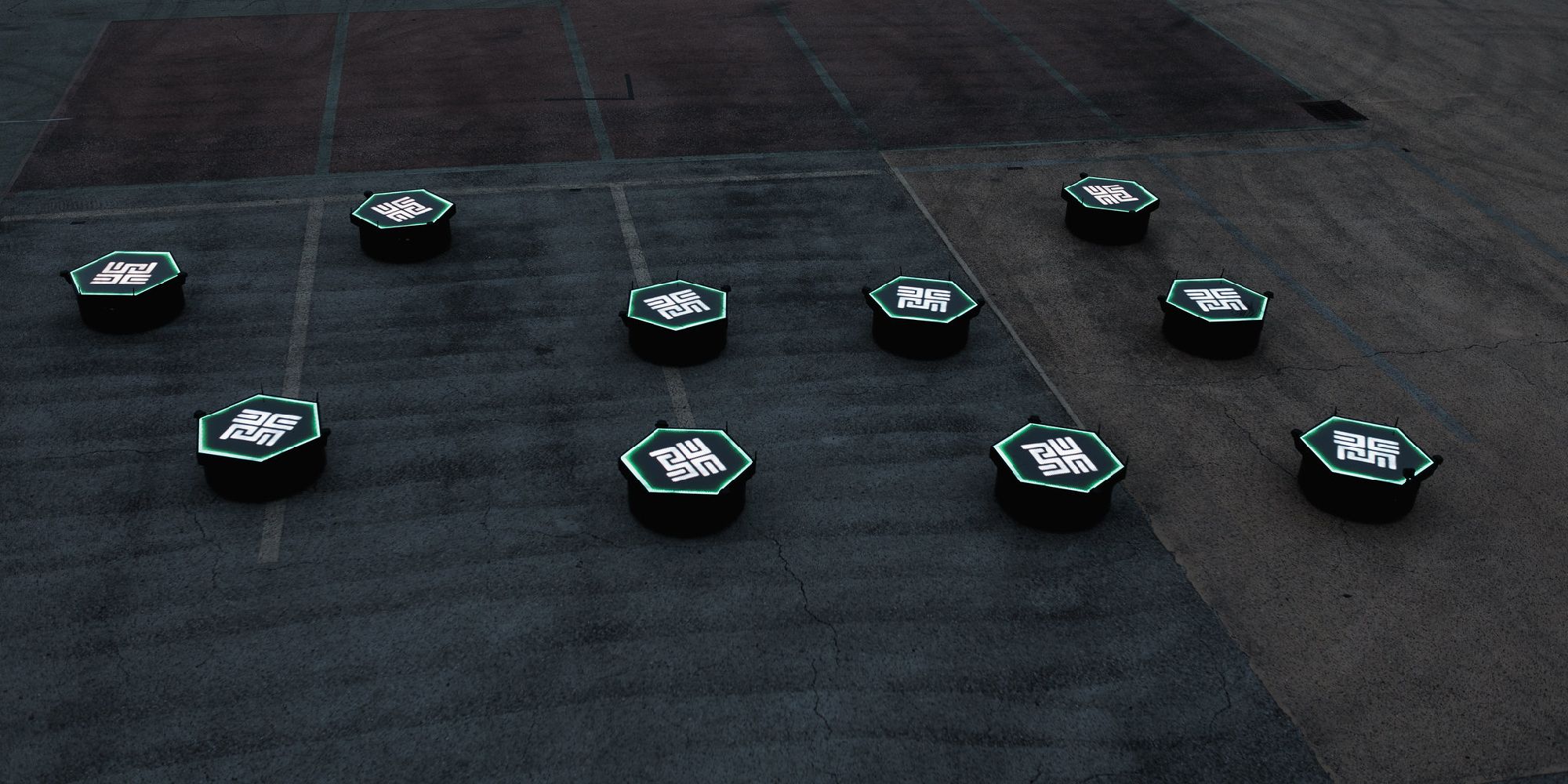
swarmOS
swarmOS ist ein leistungsfähiges Betriebssystem zur Steuerung großer Schwärme von UAVs (fliegende Drohnen) und UGVs (am Boden fahrende Drohnen), das vom Ars Electronica Futurelab entwickelt und ständig erweitert wird.
-
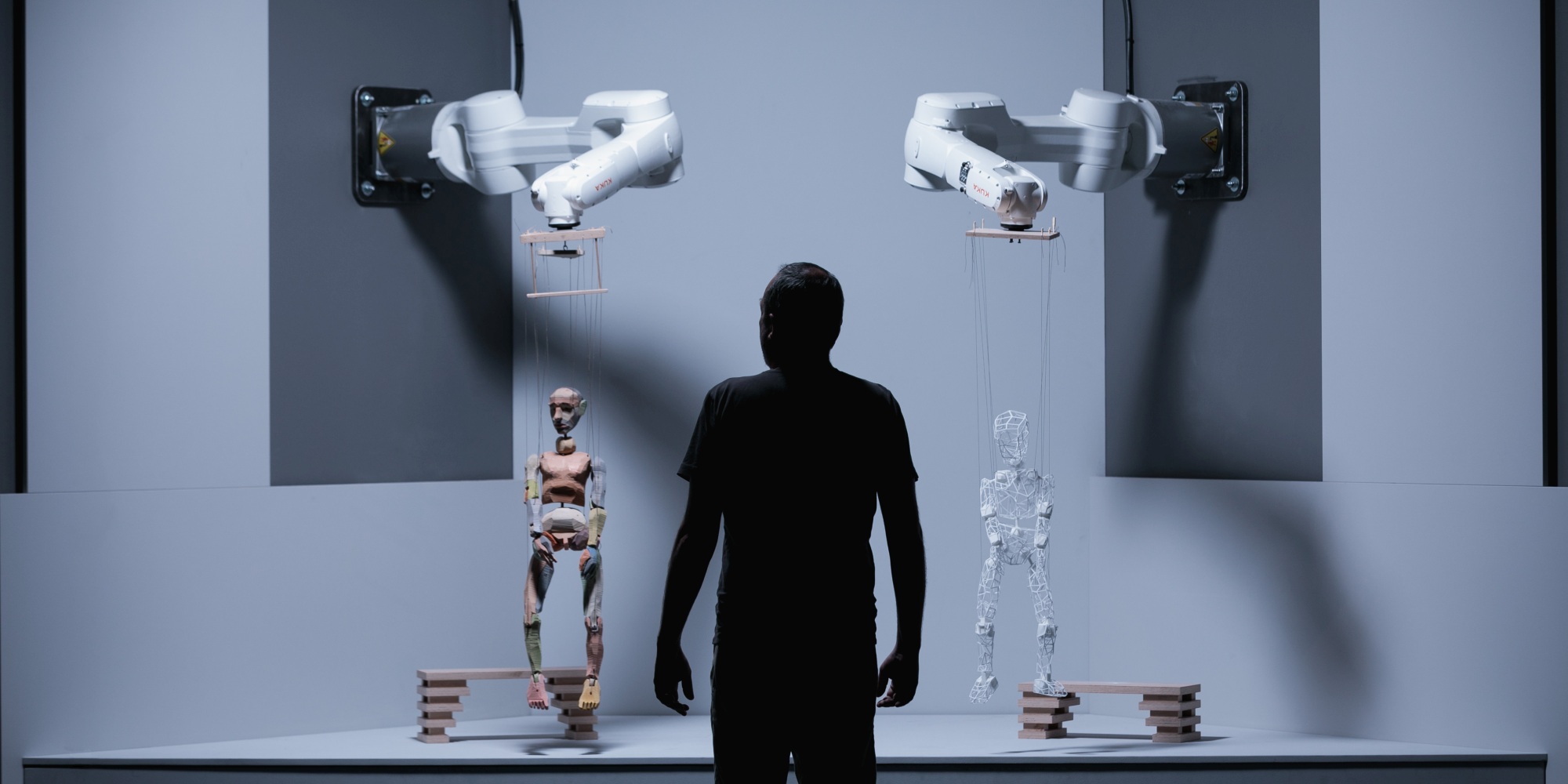
pinocchio
Two industrial robots play the role of two marionettes. The motions of a human puppeteer were recorded and are copied by the two robot arms. What happens when we are able to digitalize and therefore replicate highly complicated human abilities such as puppetry?
-

Swarm Compass
Japanese telecommunications giant NTT and the Ars Electronica Futurelab have been working together since 2017 on how to use drones—aka unmanned aerial vehicles—as a means of communication. The Sky Compass project laid the groundwork in 2017; now, Swarm Compass takes this initiative to the next level.
-
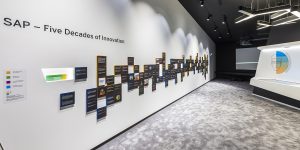
Augmented Humanity @SAP Pavilion
In 2012, Europe’s largest software manufacturer SAP commissioned the Ars Electronica Futurelab with a representative work on the 40th anniversary of the former start-up. The exhibition format “40 – years of Future” was specially developed for the planned company museum in order to communicate the company’s history and key inventions to the general public.
-
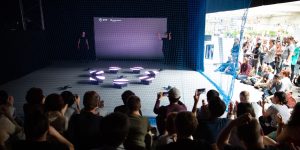
Open Futurelab 2018
Nach einer längeren Phase der Integration von Beiträgen aus dem Ars Electronica Futurelab an unterschiedlichen Schauplätzen des Festivals, sollte mit der Initiative Open Futurelab 2018 in der POSTCITY erstmals eine zentrale Schnittstelle für das kreative internationale Netzwerk des Labors entstehen.
-
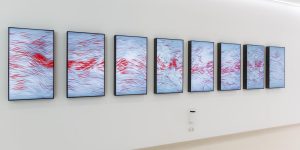
insight | out
insight | out, a work of media art by the Ars Electronica Futurelab, is a portrait of Oberbank AG Linz rendered on a fragmented frieze made up of eight video screens. The medium itself thus evokes the multiplicity of influences that flow into this portrait – the values that this long-established financial institution represents, the…
-
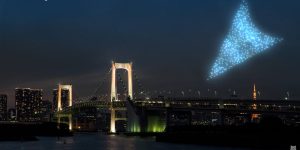
Sky Compass
A collaboration between Japanese telecommunications giant NTT and the Ars Electronica Futurelab, Sky Compass is the first step towards a vision of employing drones (or UAVs, Unmanned Aerial Vehicles) in public signage, guidance and the facilitation of traffic.
-
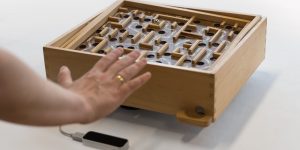
MANUACT
How can gesture research be presented so that it is comprehensible by everyone? How do you identify natural gestures for specific applications? What are the origins of such gestures, and how can they best be used in future interfaces? The Ars Electronica Futurelab has been collaborating with Chemnitz University of Technology to get to the…
-
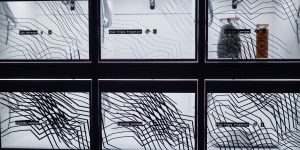
SAP Data Kitchen
The Ars Electronica Futurelab assisted SAP in designing a meeting place for innovative start-ups based on the model of the Hana Café in Palo Alto. The so-called Data Space, which would take shape at Rosenthalerstraße 38 in the center of Berlin, features two storeys of which the first floor is composed of an event space…
-
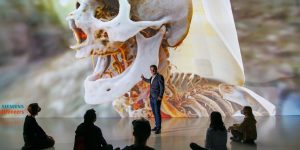
Cinematic Anatomy x Deep Space
Fotorealistische Anatomie überlebensgroß in 3D
Das mehrfach preisgekrönte Cinematic Anatomy x Deep Space führt MRT- und CT-Daten von realen Patient*innen zu fotorealistischen dreidimensionalen Bildern der menschlichen Anatomie zusammen. Organe, Blutgefäße, Muskeln, Sehnen und vieles mehr können überlebensgroß als dreidimensionale, gestochen scharfe Objekte aus allen Blickwinkeln betrachtet werden.
-

Building Bridges
The Bridge is one of the main passageways connecting two building complexes on the SAP Walldorf campus and it is host to the interactive music piece Building Bridges, jointly composed with Vienna-based composer Rupert Huber. Translating the movements of the pedestrians through a compositional algorithm, The Bridge serves as stage and instrument at the same time.